Tesco ends sale of 5p single-use carrier bags
Customers will have to buy 10p bag-for-life if they don't bring their own
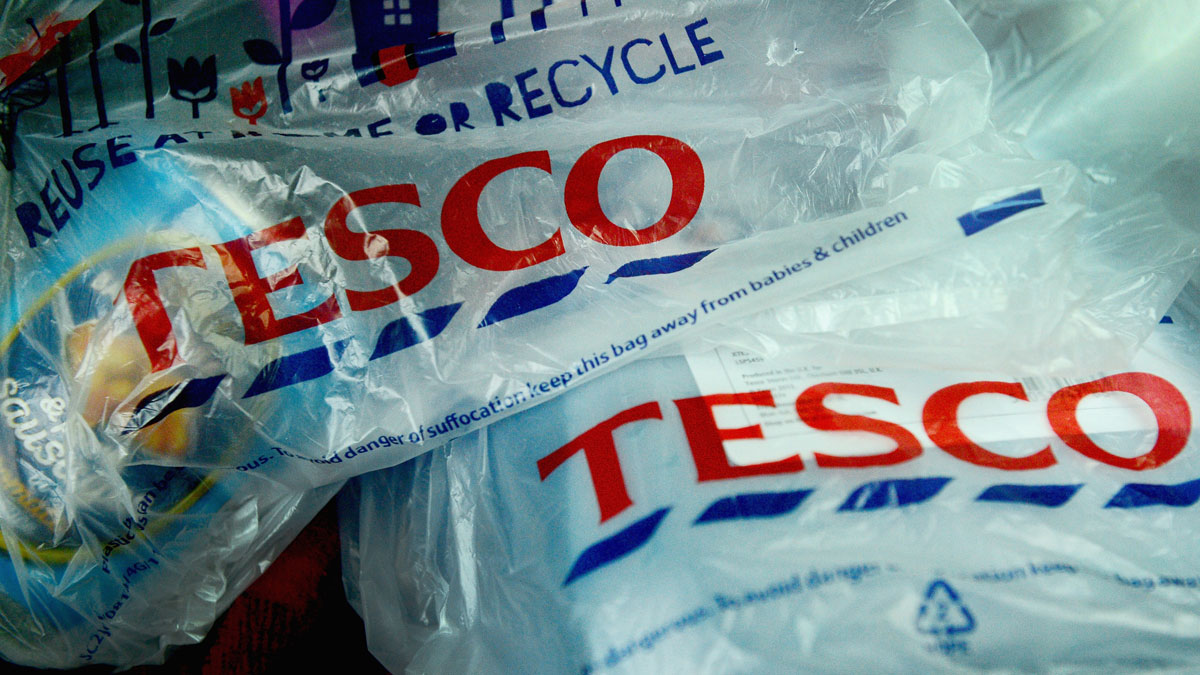
A free daily email with the biggest news stories of the day – and the best features from TheWeek.com
You are now subscribed
Your newsletter sign-up was successful
Tesco shareholders could sue for hundreds of millions
27 January
The accounting scandal at Tesco, which has already cost several senior executives, prompted a record quarterly loss and could yield a £500m fine, is set to be the subject of legal claims worth hundreds of millions of pounds or more.
Tesco admitted in late 2014 that it had overstated profits to the tune of around £326m by artificially manipulating payments to and from suppliers. Yesterday, the grocery sector ombudsman issued a strongly worded censure against the firm over the related issue of suppliers being treated unfairly, while the Serious Fraud Office is concluding an inquiry that will likely end with a severe penalty.
The Week
Escape your echo chamber. Get the facts behind the news, plus analysis from multiple perspectives.

Sign up for The Week's Free Newsletters
From our morning news briefing to a weekly Good News Newsletter, get the best of The Week delivered directly to your inbox.
From our morning news briefing to a weekly Good News Newsletter, get the best of The Week delivered directly to your inbox.
Now law firm Stewarts Law is to write to Tesco as a prelude to formal legal action on behalf of a group of institutional investors, notes the Daily Telegraph. They claim misleading statements to the market influenced investment decisions and resulted in losses of at least £100m.
That is not all. The Guardian reports another law firm, Scott+Scott, is awaiting the outcome of an SFO review before pressing ahead with a similar case on behalf of smaller investors. It is acting for Tesco Shareholder Claims, an action group that is hoping to persuade shareholders to pursue a challenge worth anything up to billions of pounds.
Tesco shares were down two per cent this morning to 157p, around 32 per cent below the level they were at before the accounting scandal broke in September 2014. The claimants will need to prove losses were the result of the scandal, however, and not part of a longer-term slump that has seen the shares tumble 70 per cent from a 2007 peak.
Stewarts Law reckons it will be helped by the fact Tesco struck a deal to settle one of two class action claims in the US in November. It agreed to pay $12m (£8m), but admitted no liability.
A free daily email with the biggest news stories of the day – and the best features from TheWeek.com
Tesco’s chief executive, Dave Lewis, told The Guardian the company had "not received any formal contact from shareholders with regard to legal action in the UK and had not made any financial provision for it". He also sought to distance yesterday's findings from the grocery watchdog with the SFO investigation into whether its accountancy practices constituted fraud.
"What either investigator is investigating is different and the onus of proof is completely different," he said.
Tesco escapes fine over 'troubling' supplier payments
26 January
Shares in Tesco have recovered from an early morning sell-off after it escaped being fined over the way it pays suppliers.
The supermarket group is already facing the prospect of a £500m penalty over an accounting scandal that centred on payments from suppliers for the likes of in-store promotions and which left a £326m hole in its finances.
Now the Groceries Code Adjudicator (GCA) has ruled the supermarket group "acted unreasonably" in withholding or reducing payments to suppliers to benefit its own financial position.
However, the GCA was not able to fine Tesco as the power to issue financial penalties was not ratified at the time the breaches took place.
"I received internal Tesco emails which encouraged Tesco staff to seek agreement from suppliers to the deferral of payments due to them in order to temporarily help Tesco margin," said the adjudicator, Christine Tacon . "I also saw internal Tesco emails suggesting that payments should not be made to suppliers before a certain date in order to avoid underperformance against a forecasted margin."
If payments were withheld and booked against a different reporting period, that would artificially inflate margins and profits in the short-term and is a breach of accounting rules. Tesco was found to have delayed payments both with and without the suppliers' consent, according to The Guardian, and to have unilaterally decided to reduce payments or withhold debts.
"I was troubled to see Tesco at times prioritising its own finances over treating suppliers fairly," Tacon said. "The sums were often significant and the length of time taken to repay them was too long." Tesco often did not repay even agreed debts for up to two years.
The grocer is said to have improved its practices since the period under investigation - June 2013 and February 2015 - and Tacon has ordered it to "improve its invoices, making them clearer and more transparent for suppliers and to train finance teams and buyers".
Tesco chief executive Dave Lewis said: "In 2014, we undertook our own review into certain historic practices, which were both unsustainable and harmful to our suppliers. We shared these practices with the adjudicator and publicly apologised. Today, I would like to apologise again. We are sorry."
Shares dipped two per cent at the open today on early reports of the adjudicator's verdict this morning, adding to a three per cent drop yesterday. But by late morning, after the final report was published, they had recovered and were up for the day by 0.2 per cent to 156p.
Tesco may be fined up to £500m over accounting scandal
25 January
Tesco could be hit with a fine of as much as £500m as the Serious Fraud Office brings its investigation into the supermarket's accounting scandal to an end, say analysts.
Britain's largest grocer has been the subject of a 16-month criminal inquiry into alleged overstatement of profits of more than £325m, which led to the departure of several senior executives and contributed to the group reporting record quarterly losses in the early part of last year. Now an analyst at Cantor Fitzgerald says the SFO could announce its results as soon as this week, reports The Guardian.
The £500m figure is based on "one per cent or more of its UK grocery sales, or £350m on £35bn of sales", with additional "punitive fines to deter other grocery retailers".
The case hinges on whether the alleged fraud, said to involve payments from suppliers being brought forward and inflated to distort profit totals, can be traced directly back to senior managers by "mens rea", says Cantor. This is "where 'the acts and state of mind' of those who represent the 'directing mind and will' of the company can be attributed to the employees' behaviour and fraud".
In another piece of bad news for Tesco, the supermarket group has confirmed it is abandoning an attack on the London lunchtime sandwich market before it had even got going and will shut the two trial Food-to-Go stores it had opened in the UK capital. It had hoped the stores would give it a foothold in a market aimed at white-collar workers and dominated by Pret a Manger.
"As part of the trial, our customers told us they prefer the wider range of products offered in our Express and Metro stores," a spokesman told the Daily Telegraph. "Closing these stores was a difficult decision and we will, of course, do everything we can to find alternative roles within Tesco for colleagues affected by this decision."
Tesco's shares were down 2.2 per cent to 157p this afternoon.
Tesco shares leap after surprisingly strong Christmas sales
14 January
Shares in Britain's largest grocer, Tesco, have surged this morning on the back of surprisingly strong Christmas sales figures.
The company reported that like-for-like takings in shops open more than one year rose 1.3 per cent in the six weeks to 9 January, far exceeding the fall of anywhere up to 3 per cent that had been predicted by analysts. This came despite price cuts of up to 2.5 per cent over the third quarter and as much as 5 per cent on "seasonally popular" items, which were offset by a rise in shoppers and transactions.
Investors continued to buy into a recent rally on the news, trading shares nearly 6 per cent higher at one point. The stock was up 5 per cent to 166p at 10am this morning, around 19 per cent above its recent low on Friday.
Shares across the supermarket sector have been broadly rising this week as the "big four" mount a fightback against the discounters. On Monday, Morrisons shocked the market with its first Christmas period sales increase in four years, while Sainsbury's also beat expectations with its results yesterday.
At the same time, the German duo Aldi and Lidl, which have been amassing market share in recent years, fell a little over the festive season, despite seeing one million more shoppers through their doors than they had in 2014.
Tesco still experienced a decrease in sales overall in the third quarter and chief executive Dave Lewis told The Guardian there was "more work to do" to complete a turnaround from the record losses posted at the beginning of last year and to stem its longer-term market share slide. In particular, food price deflation amid a fierce price war prompted by the discounters is hitting profitability.
To some degree, the group is trying to ease back from the aggressive price competition. It said two-thirds of its 1.5 per cent like-for-like decline over the three months to January was accounted for by ending its "unsustainable" "£5 off £40" national coupon campaign, Sky News reports.
Tesco added that online orders had performed well, with a record number of deliveries made on 22 December, while sales at smaller convenience stores were also strong, up 3.5 per cent.
Tesco shares surge – but only briefly
6 January
Tesco shares surged back on Tuesday after a ratings upgrade prompted a buying frenzy, but it has failed to hold gains amid a prolonged slump.
The UK's largest supermarket group by sales volume was the second biggest riser on the FTSE-100 index yesterday, Reuters notes, after it jumped 5.5 per cent. This followed analysts at Deutsche Bank issuing a note advocating investment in UK food retailers after a slump in share prices in 2015 –highlighting potential for Tesco's "margin progression to outpace rivals" in particular.
This was particularly significant, says the Daily Telegraph, as just two months ago, Deutsche downgraded Tesco to a "hold", citing the pressure coming from discounters. The return to a "buy" rating came as it predicted pre-tax earnings may rise 0.5 per cent year on year in the first half of 2016 and 2.2 per cent overall next year.
But Tesco shares are falling back again today, dropping 2.5 per cent to 141p and underperforming a 1.6 per cent fall on the wider market. The supermarket group hit an 18-year low close of 153p in December and there is little sign of investor sentiment picking up meaningfully.
This bearish view set in early in 2015 after Tesco reported one of the worst losses in British corporate history. Alongside a plethora of problems across the group, its core supermarket sales have been consistently falling in the face of an onslaught from the discounters Aldi and Lidl that has also hit "big four" rivals Asda and Morrisons.
The Telegraph notes that figures are likely to get worse before they get better, with like-for-like sales set to fall 3.2 per cent over the Christmas period "due to tougher trading conditions compared to last year".
Morrisons, which slumped so much last year that it fell out of the FTSE-100 for the first time in 14 years, also benefitted from the Deutsche positivity on grocers, gaining 2.4 per cent. It, too, is dipping back again today, but by a more modest 0.3 per cent.
-
 Political cartoons for February 16
Political cartoons for February 16Cartoons Monday’s political cartoons include President's Day, a valentine from the Epstein files, and more
-
 Regent Hong Kong: a tranquil haven with a prime waterfront spot
Regent Hong Kong: a tranquil haven with a prime waterfront spotThe Week Recommends The trendy hotel recently underwent an extensive two-year revamp
-
 The problem with diagnosing profound autism
The problem with diagnosing profound autismThe Explainer Experts are reconsidering the idea of autism as a spectrum, which could impact diagnoses and policy making for the condition
-
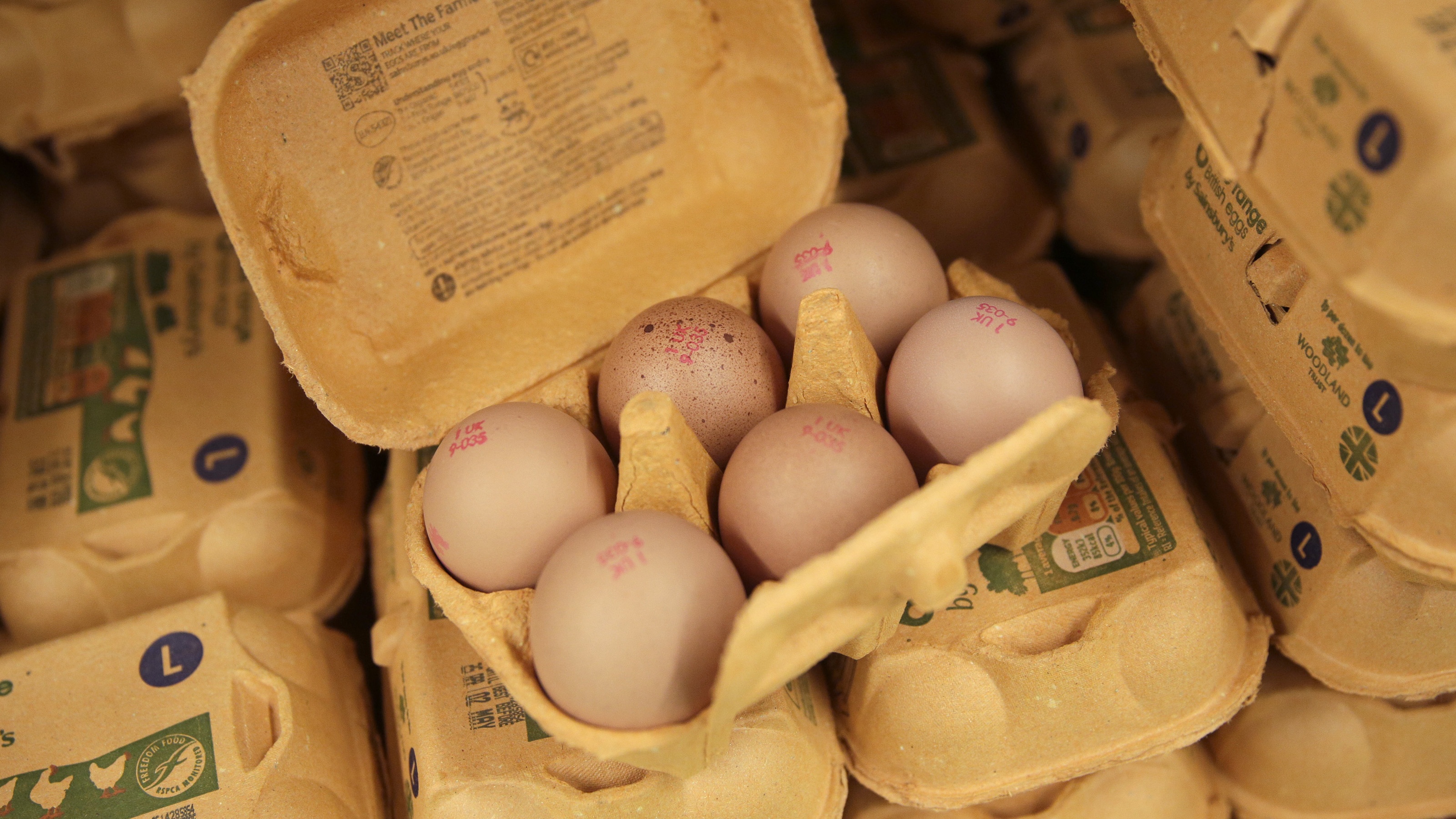 The UK’s Christmas egg shortage
The UK’s Christmas egg shortagefeature Supermarkets blame bird flu but farmers say unfair buying practices are driving them out of business
-
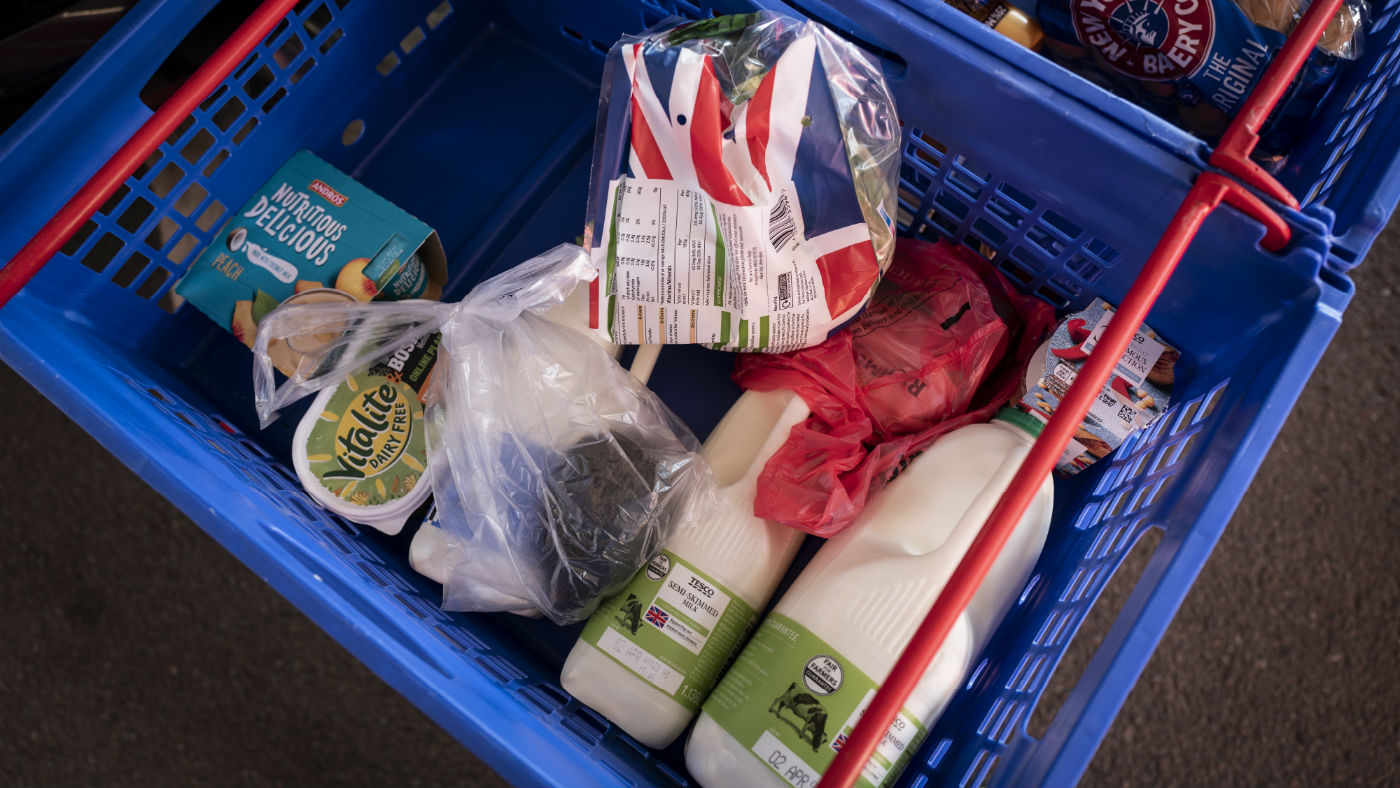 Tesco to reward lockdown temps with 16,000 permanent jobs
Tesco to reward lockdown temps with 16,000 permanent jobsSpeed Read The supermarket giant has more than doubled online capacity since lockdown amid boom in demand
-
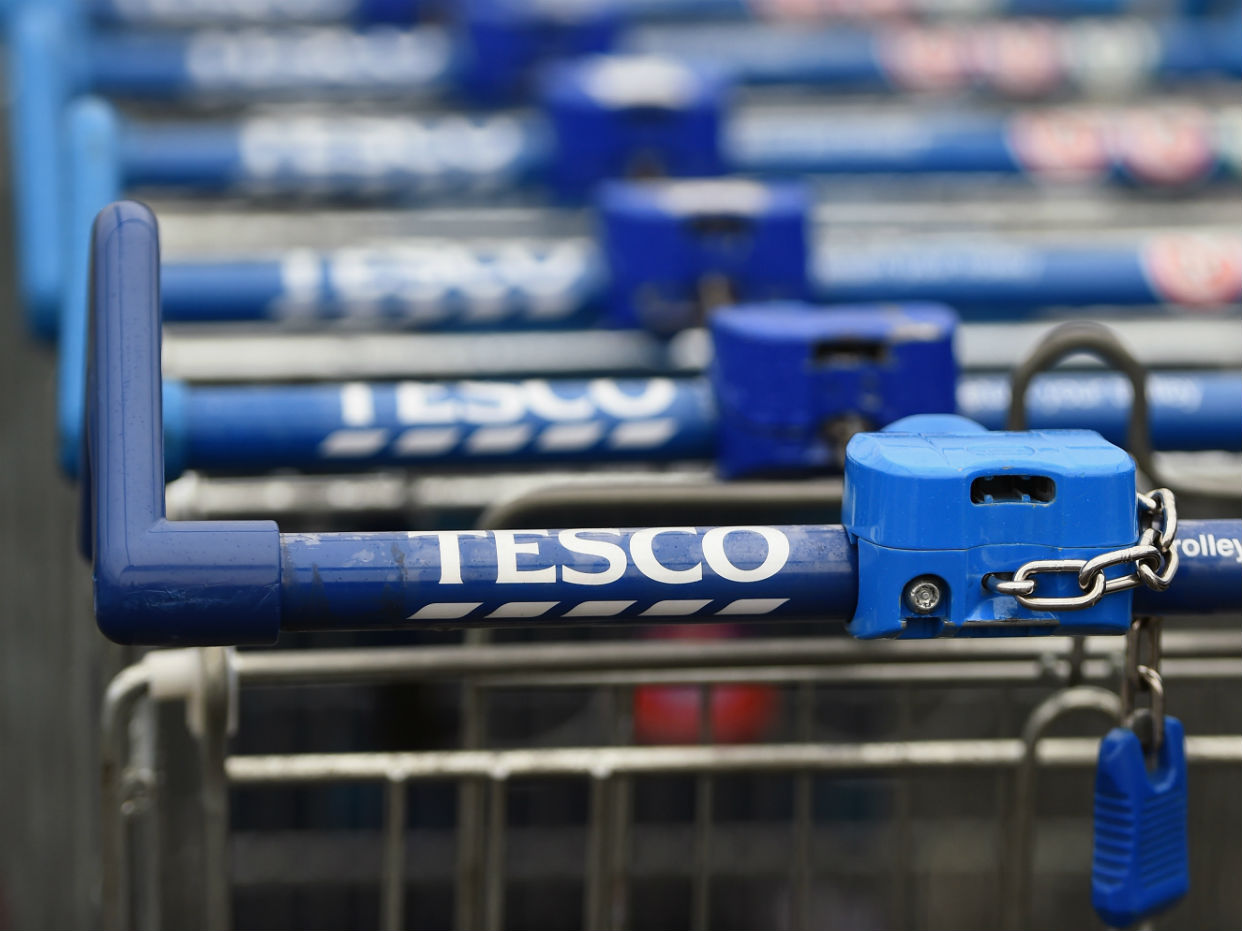 How coronavirus put the weekly shop back in vogue
How coronavirus put the weekly shop back in vogueSpeed Read Tesco boss says transactions have halved as basket size doubles
-
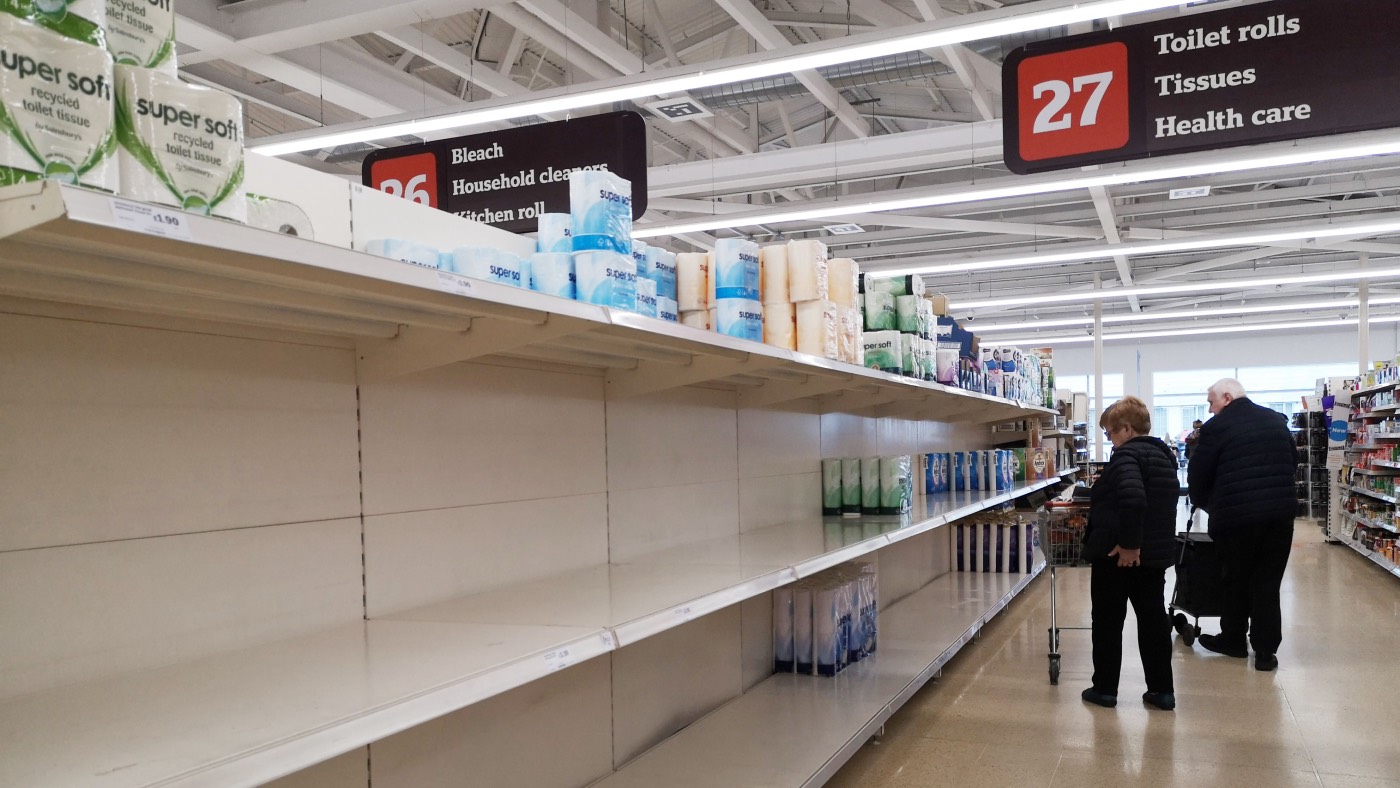 Coronavirus: supermarkets start rationing to combat panic buying
Coronavirus: supermarkets start rationing to combat panic buyingSpeed Read Stockpiling has led to empty shelves at some UK supermarkets - but shortages may be short-lived
-
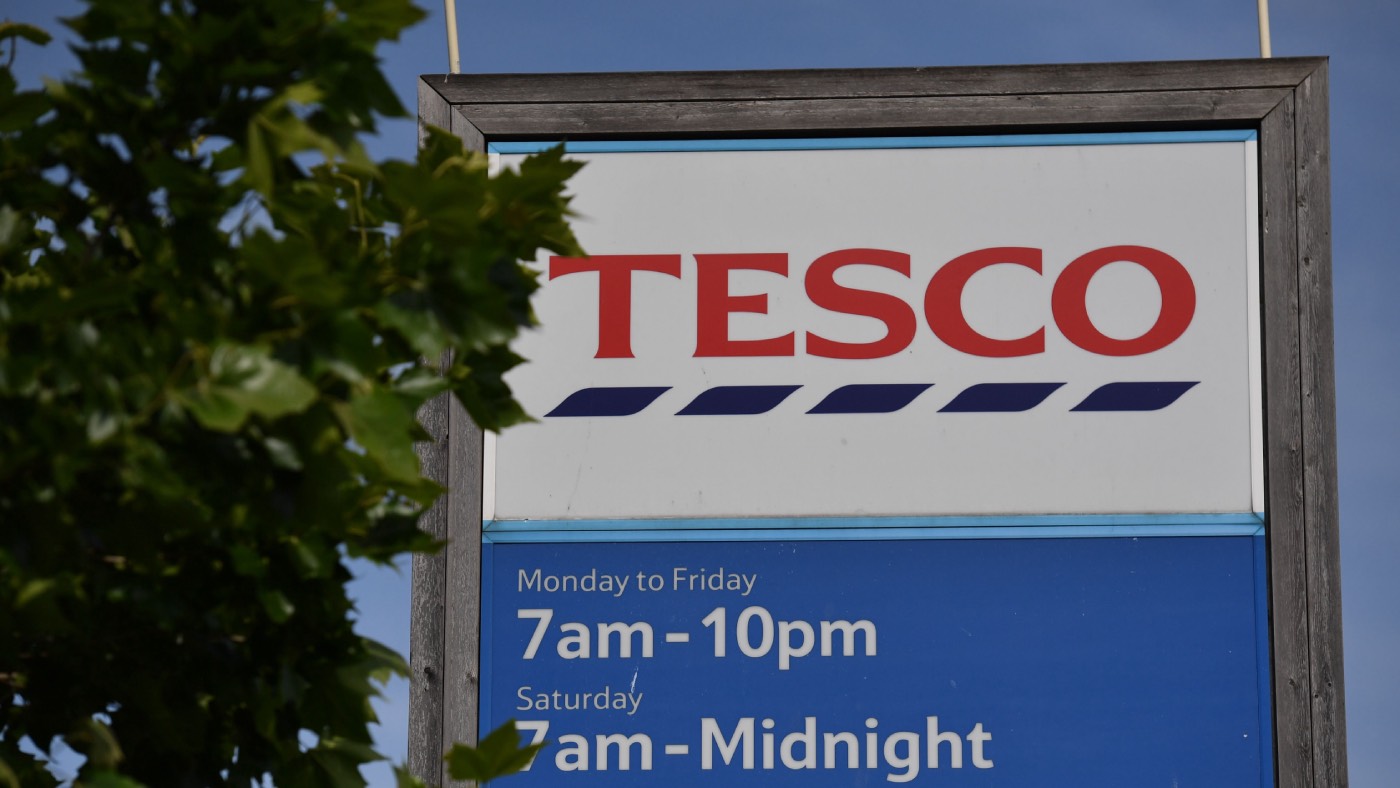 Tesco blames falling bread demand for 1,800 job cuts
Tesco blames falling bread demand for 1,800 job cutsSpeed Read Supermarket chain's announcement comes after rivals trimmed workforces
-
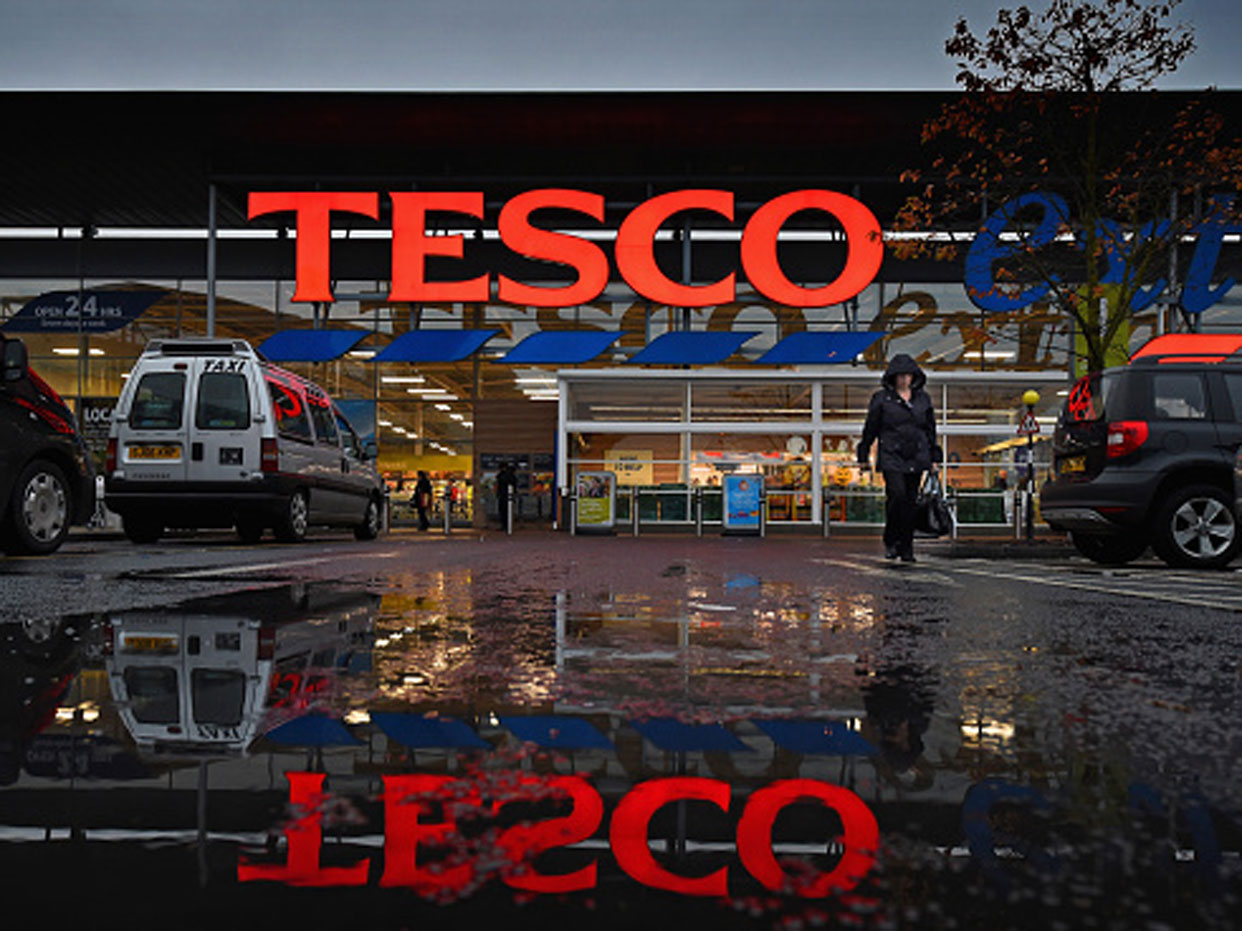 Tesco to sell plasters in diverse skin tones
Tesco to sell plasters in diverse skin tonesSpeed Read Move to diversify plaster offering follows viral tweet last year
-
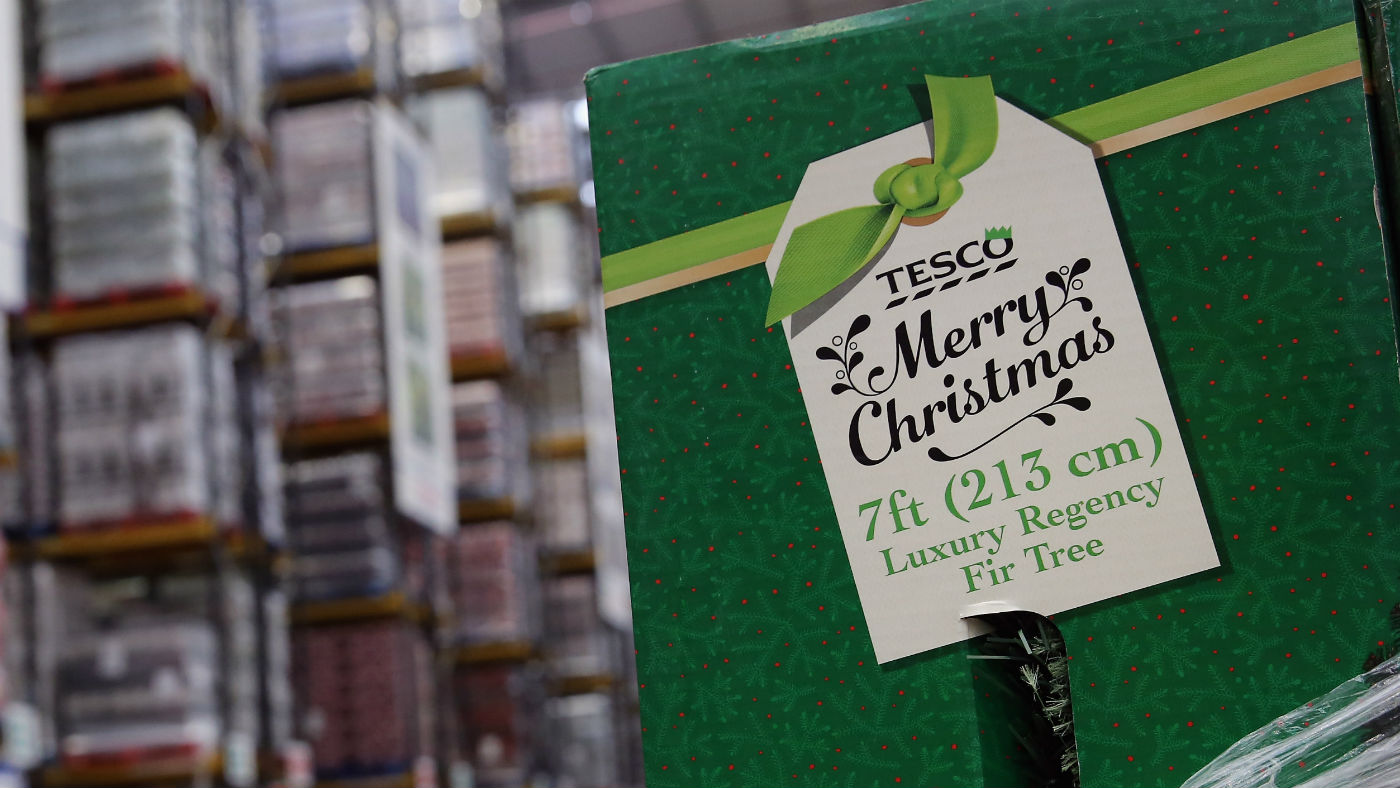 Tesco facing Christmas card forced labour claims
Tesco facing Christmas card forced labour claimsSpeed Read Six-year old’s discovery of a note from prisoners in a Chinese gulag puts spotlight on retailer’s relationship with suppliers
-
 Sales of Christmas puddings down on 2018
Sales of Christmas puddings down on 2018Speed Read Supermarket data shows slump in demand for festive food